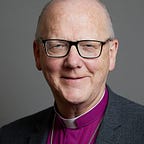Freedom Day has arrived … but what does it mean?
As we re-embrace freedom, it is important that the remit of government does not become reframed by the events of the past eighteen months.
Freedom Day is finally here. After weeks of promises that we would be able to cast aside the constrictions of the past seventeen months, the day has finally dawned.
However, despite assurances from the Prime Minister that we have weathered the worse of the COVID pandemic, the virus has shown that it is not yet finished with us. Ironically, both Boris Johnson and Rishi Sunak are shielding after it was confirmed that Sajid Javid has coronavirus and had been in close contact with many of his colleagues. It may not be the new-found freedom that the Prime Minister and the Chancellor were hoping for today.
Freedom is a slippery concept. Even Boris Johnson had begun to temper his comments with caution as COVID cases rocketed over recent weeks. Although the Prime Minister has appeared to be rather gung-ho, it would be foolish to believe that with the end of official legal restrictions the government’s desire to control the behaviour of the populace has ceased. My caution is not based on paranoid fantasy, but on the words of Boris Johnson, who on 5 July, when outlining the relaxation of restrictions said: “We will change the basic tools to control human behaviour.”
His statement goes on to outline which legal restrictions are being removed and even admits that from now on the intention is to “allow people to make their own informed decisions about how to manage the virus.” Still, the use of the word ‘control’ does sound an alarm and raises questions about the sort of freedom that the Prime Minister is promising.
For starters, it is a tacit admission that the government’s aim since the pandemic began was to ‘control human behaviour’ and that project is set to continue, albeit in a less overtly restrictive manner. Of course, given the circumstances, this is not wholly unreasonable but semantically it begs the question: why not use the term ‘control the virus’ transmission’ since this provides the justification as to why the government might need to control our behaviour? The goal of the restrictions was surely to reduce transmission, the need to control being a consequence, not a goal in itself. Perhaps this is self-evident, but for those in and around politics, statements like these are drafted in advance and every word is checked carefully. I fear Boris Johnson’s comments accidentally revealed his true views.
What concerns me in particular was the lack of acknowledgement that such methods of governing, if ever necessary, were extreme, temporary and highly regrettable. After all, it is not the role of liberal secular authorities in a democratic society to control human behaviour. That is the activity of autocratic and totalitarian regimes.
Lockdown was a decision made in the most difficult of circumstances. As we learn to live with COVID, it is vital that the work of government does not become reframed by the events of the past year. The extraordinary acquisition of new powers to tackle COVID may have left a taste for control within government, as it is far easier to rule by central diktats than to engage with national and local stakeholders to build consensus that maximise individual liberty.
It is important that the government recalls the unspoken contract they have with citizens. It is to serve the population and enable the flourishing of self-responsibility. At the same time, government has a duty to protect and provide for the most disadvantaged. To do this, governments have to act with the consent of the people, not work against them. This is fundamental to true freedom.
Each day before business begins in the House of Commons, a prayer is said which sets out the responsibilities of all those involved in government. Our Prime Minister might do well to ponder on it:
Lord, the God of righteousness and truth, grant to our Queen and her government, to Members of Parliament and all in positions of responsibility, the guidance of your Spirit. May they never lead the nation wrongly through love of power, desire to please, or unworthy ideals, but laying aside all private interests and prejudices keep in mind their responsibility to seek to improve the condition of all mankind; so may your kingdom come and your name be hallowed.
